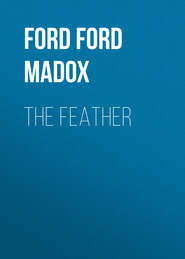По всем вопросам обращайтесь на: info@litportal.ru
(©) 2003-2024.
✖
The Queen Who Flew
Настройки чтения
Размер шрифта
Высота строк
Поля
"Your Majesty might give the other pairs to the poor."
"But what are 'the poor'?"
"The poor are wicked, idle people – too wicked to work and earn the money, and too dirty to wear stockings," the Regent said.
"But what would be the good of my stockings to them?" the Queen asked.
"It is the usual thing, your Majesty," the Regent said. "But will your Majesty be pleased to sign these papers?"
The Queen said, "Oh yes, I'll sign them, if you'll just go down into the kitchen and ask for a piece of raw meat, about the size of my hand, and a piece of red flannel about large enough to go round a bat. Oh, and what's a good thing for rheumatism?"
The Regent looked a little surprised. "I – your Majesty, I really don't exactly know."
"Oh, well, ask the cook or somebody."
"Well, but – couldn't I send a servant, your Majesty?" the Regent said.
"No, that wouldn't be any good," the Queen said. "If you're to take the place of my governess you'll have to do that sort of thing, you know."
The Regent bowed. "Of course I shall be only too grateful for your Majesty's commands. I merely thought that your Majesty might need some assistance in signing the papers."
But the Queen answered, "Oh no, I can manage that sort of thing well enough myself. I'm quite used to it; so be quick, and remember, a nice juicy piece of raw meat and some red flannel, and – oh, opodeldoc; that's just the thing. Be quick! I don't want to keep the bat waiting."
The Regent went backwards out of the room, bowing at every three steps, and, as he was clad in armour from top to toe, he made a clanking noise – quite like a tinker's cart, if you've ever beard one.
So, left to herself, the Queen signed the papers one after the other. They all began —
"By THE QUEEN, A PROCLAMATION, E.R
"Whereas by our Proclamation given this 1st day of May —
But the Queen never read any further than that, because she could never quite understand what it all meant. At the last signature the happened to make a little blot, and somehow or other the ink happened to get into one of her nails, and that annoyed her. It is so difficult to get ink out of one's nails.
"I don't care if I never sign another Proclamation," she said; "and I hope I never shall. Now, look here," she continued to the Regent, who at that moment entered. "If you were a governess I should be able to make you get this ink out; but how can I ask a man to do that?"
"I will make the attempt, if your Majesty pleases," the Regent said.
"Well, but you haven't got any nail-scissors," the Queen replied.
"I might use my sword," the Regent suggested.
But the Queen shivered. "Ugh! fancy having a great ugly thing like that for it!" she said. "Oh, well, you've brought the things! Here are your papers. They're all signed; and, if you want anything else, you'll have to come into the garden."
And she took up the meat and the flannel and the opodeldoc and went into the garden, leaving the Regent with the idea that he had made rather a bad business by becoming the Queen's attendant. But he was a very determined man, and merely set his teeth the firmer.
Under the overhanging rose tree the Queen sat awaiting the bat's awakening.
"It never does to wake him up," she said. "It makes him so bad tempered."
So she sat patiently and watched the rose-petals that every now and then fluttered down on the wind.
It was well on towards the afternoon, after the Queen had had her dinner, before he awoke.
"Oh, you're there?" he said. He had made the same remark every day for the last two years – which made seven hundred and thirty-one times, one of the years having been leap-year.
The Queen said, "Yes, here I am!"
The bat yawned. "What's the weather like?" he asked.
The Queen answered, "Oh, it's very nice, and you promised to tell me the flower that would make me fly."
"I shan't," the bat said. "You'd eat up all the flies – a great thing like you."
The Queen's eyes filled with tears, it was so disappointing.
"Oh, I promise I won't eat any flies," she said; "and I'll go right away and leave you in peace."
The bat said, "Um! there's something in that."
"And look," the Queen continued, "I've brought you your meat and flannel, and some stuff that's good for rheumatism."
The bat's eyes twinkled with delight. "Well, I'll tell you," he said. "Only you must promise, first, that you won't tell any one the secret; and secondly, that you won't eat any flies."
"Oh yes, I'll promise that willingly enough."
"Well, put the things up here on the top of the seat and I'll tell you."
The Queen did as she was bidden, and the bat continued —
"The flower you want is at this moment being trodden on by your foot."
The Queen felt a little startled, but, looking down, saw a delicate white flower that had trailed from a border and was being crushed beneath her small green shoes.
"What! the wind-flower?" she said. "I always thought it was only a weed."
"You shouldn't think," the bat said. "It's as bad as supposing."
"Well, and how am I to set about flying?" the Queen asked.
And the bat answered sharply, "Why, fly. Put the flower somewhere about you, and then go off. Only be careful not to knock against things."
The Queen thought for a moment, and then plucked a handful and a handful and yet a handful of the wind-flowers, and, having twined them into a carcanet, wound them into her soft gold-brown hair, beneath her small crown royal.
"Good-bye, dear bat," she said. She had grown to like the bat, for all his strange appearance and surly speeches.
The bat remarked, "Good riddance." He was always a little irritable just after awakening.
So the Queen went out from under the arbour, and made a first essay at flying.












